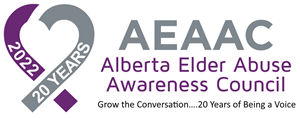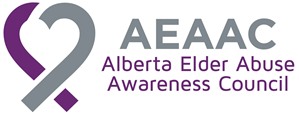Elder abuse is a growing social concern, but it is not new. Too many older Canadians have suffered abuse and neglect at the hands of family members and caregivers for too many years. What is new is that we have a growing awareness and concern about elder abuse, putting a new face to this type of family violence.
Like other types of domestic violence, elder abuse is extremely complex. It is a combination of many factors, from psychological to economic as well as the mental and physical conditions of the victim and the abuser. These factors do not usually operate in isolation. Instead, they tend to function as complex dimensions, interacting in ways uniquely dependent on the victim, perpetrator and the situation.
Research into elder abuse is in its early stages. However, a few theories are emerging that address the cause of elder abuse. These include:
In the case of spousal abuse, when spouse who has been the abuser becomes ill or disabled the previously abused partner may retaliate and become the abuser.
As caregivers, people facing these challenges are often lacking the decision making capacity to make appropriate judgments for the elderly people in their care. In spite of this, they are thrust into this role.
Source: Golden Years Hidden Fears, Virginia Boyack, (1997)
Like other types of domestic violence, elder abuse is extremely complex. It is a combination of many factors, from psychological to economic as well as the mental and physical conditions of the victim and the abuser. These factors do not usually operate in isolation. Instead, they tend to function as complex dimensions, interacting in ways uniquely dependent on the victim, perpetrator and the situation.
Research into elder abuse is in its early stages. However, a few theories are emerging that address the cause of elder abuse. These include:
Learning Theory
Learning theory or transgenerational violence theory is based on the belief that violence is a learned behavior pattern. A child observes violence as an acceptable reaction to stress and then internalizes this as an acceptable behavior. In cases of elder abuse, violent behavior becomes cyclical: the abused – the child - becomes the abuser of the parent.In the case of spousal abuse, when spouse who has been the abuser becomes ill or disabled the previously abused partner may retaliate and become the abuser.
Physical/Mental Dependence (Impairment)
This theory is based on the belief that elderly persons who have a severe mental or physical impairment are most vulnerable to becoming abused. In relationships where one person is dependent and another person is the helper or caregiver, there is always potential for misuse of power by the caregiver.Pathologic Abusers
This theory focuses on the abusers having personality flaws or character flaws that cause abusiveness. Caregivers with the following qualities tend to be far more likely to be abusive:- drug and/or alcohol abuse/addiction
- mental incapacitation or mental illness
As caregivers, people facing these challenges are often lacking the decision making capacity to make appropriate judgments for the elderly people in their care. In spite of this, they are thrust into this role.
Stressed Caregiver
Caring for an older adult, especially one who suffers from a mental or physical impairment is highly stressful. The stressed caregiver theory proposes that the mounting internal stress and/or external pressure that come with providing care for the elderly can erupt in violence. If a caregiver feels there is no relief or escape from this stress, abuse may occur.Societal Attitudes
This theory is based on the belief that certain societal attitudes toward older people make it easier for abuse to occur without remorse on the part of the caregiver. These attitudes can also reduce the likelihood of outside detection or intervention. Negative attitudes can lead to devaluation and lack of respect for older people, who are often stereotyped as frail, incompetent and powerless. When regarded in this way, there can be a societal failure to recognize the importance of assuring dignity, support and safety for every older person.Source: Golden Years Hidden Fears, Virginia Boyack, (1997)





